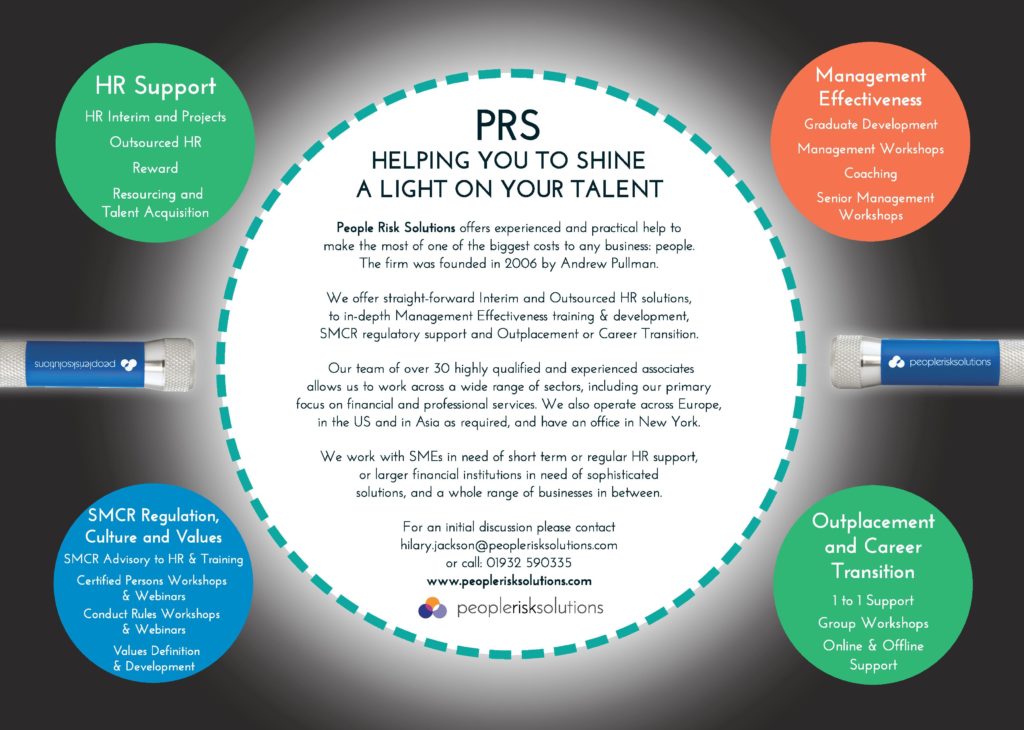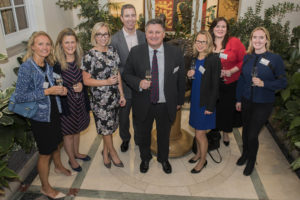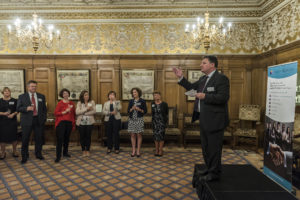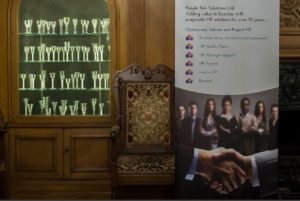Today we are featuring an article of interest by Ian Claffey about his coaching work in Mongolia. It is a fascinating look at the opportunities and challenges that working in a different culture presents, and the approaches required to meet them. Importantly, if you ever find yourself in this part of the world, Ian also provides a selection of top tips for doing business in Mongolia.
Coaching in Mongolia – The Final Frontier
Arriving at Chinggis Khaan International Airport on a cold winters day was always going to be a shock to the system, more so as I had left Thailand several hours earlier, which had been +38 degrees. I had known cold as a child in Glasgow, but this was different. Ulaanbaatar is one of the coldest capital cities in the world. It would be easy to think that an average 250 days of sun each year would bring warmth. However, temperatures range from -40°C in the winter to+40°C in the Gobi Desert in the summer.
My first contact with Mongolians was through their Embassy in London. I was invited to a function, and I was delighted to attend. It was there I was introduced to the leadership team from the Association for Development of Mongolian Women in Europe, (ADMWE) when they held a dinner to celebrate Mongolian Lunar New Year, ‘Tsagaan Sar’.
The (ADMWE) were planning their ‘Mongolian Woman of the Year’ awards to be held in Frankfurt. I thought I would show goodwill and offer to provide and pay for a leadership coaching programme for their fund-raising auction, not thinking they would ask me to attend the event in Germany.
 My coaching career has provided me with some interesting experiences over the years, including conflict mediation in Nigeria, team development on the Vaal River in South Africa, coaching Group Internal Audit Teams in Singapore, Tokyo, and Zurich, as well as supporting a Leadership Team, at Board level, in the mountains of Tuscany, none of which prepared me for being auctioned off to 150 Mongolians. At the auction the programme I provided was bid for by a CEO from a leading company in Ulaanbaatar, I was very happy the (ADMWE) made some money from the event. The proceeds from last year’s event provided a range of programmes for children in Mongolia. These included supporting girls to build confidence and leadership skills. Also, a strong boy’s initiative, helping to develop good interpersonal skills, along with providing 200 children with school bags and writing materials for the start of the new school year.
My coaching career has provided me with some interesting experiences over the years, including conflict mediation in Nigeria, team development on the Vaal River in South Africa, coaching Group Internal Audit Teams in Singapore, Tokyo, and Zurich, as well as supporting a Leadership Team, at Board level, in the mountains of Tuscany, none of which prepared me for being auctioned off to 150 Mongolians. At the auction the programme I provided was bid for by a CEO from a leading company in Ulaanbaatar, I was very happy the (ADMWE) made some money from the event. The proceeds from last year’s event provided a range of programmes for children in Mongolia. These included supporting girls to build confidence and leadership skills. Also, a strong boy’s initiative, helping to develop good interpersonal skills, along with providing 200 children with school bags and writing materials for the start of the new school year.
I have travelled extensively with my work in Asia, mostly in South East Asia, but arriving in Mongolia was like entering a new world. The more I got to know the people, the more I liked them. I read about their history, values, beliefs, and culture. I also noticed they are fiercely proud and have a unique presence – a quiet strength.
My professional career has been built, in part, trying to understand different cultures, to provide solutions for the clients, and organisations I work with, who are operating in new cultures, and who are often facing cross-cultural challenges or conflict.
In my experience, having empathic understanding is key to getting the best out of people when arriving in a new country. Depending on which part of the world a direct approach may also be needed. To be too inclusive may be seen as a weakness in some countries. I was interested to see what might work best in Ulaanbaatar.
One of the largest opportunities and cultural challenges facing Mongolia is the Oyu Tolgoi mine. The mine was given its name from the turquoise-coloured copper ore found in the Gobi Desert. Mongolia has an abundance of natural resources including coal, copper, gold, uranium, and rare earth minerals. This has made it a very attractive destination for international organisations. I suspect that doing business with international organisations, without losing their identity, will remain high on the agenda for Mongolians.
Mongolia joined the free market in 1990, after the collapse of the Soviet Union. This was followed by the introduction of a multi-party system and a market economy.
 One of the few countries in the world not to have embraced executive coaching, I was keen to look at how coaching could work in Mongolia. I wanted to make sure it was set at international standard. When in Bangkok, I met with the Regional Director from the International Coaching Federation (ICF) for Asia to explore how we could ensure quality. We are now looking at getting an (ICF) Chapter set up in Ulaanbaatar.
One of the few countries in the world not to have embraced executive coaching, I was keen to look at how coaching could work in Mongolia. I wanted to make sure it was set at international standard. When in Bangkok, I met with the Regional Director from the International Coaching Federation (ICF) for Asia to explore how we could ensure quality. We are now looking at getting an (ICF) Chapter set up in Ulaanbaatar.
Resource-rich in copper, gold and coal, Mongolia is in a very strong position to make the most from its natural wealth, in particular, Oyu Tolgoi mine and other mining projects. Strong leadership and direction from the MPP, The Mongolians Peoples Party, along with investment by the IMF, the Asian Development Bank, World Bank and input from China, Japan and South Korea will make it possible for Mongolians to reap the rewards.
Taking a corporate approach, with a long-term view of creating robust senior leaders, is where coaching can help. Developing local ‘talent’ will, in my opinion, facilitate better relationships when dealing with multiple stakeholders from a range of different countries, levels and disciplines. Building a goal-setting and solution-focused mindset, based on the ability to both give and receive constructive feedback, is critical when developing strong leaders.
I have put together a list of tips for doing business in Mongolia:
• Mongolians are very hospitable people. Try to accept any food or drink you are offered, even if you only take a little. They can be offended if you refuse. Having said that horse milk is an acquired taste!
• Accepting with two hands is the way things are done, the right hand supports the other at the wrist or elbow.
• Respect for elders is shown by greeting them first, try not to walk in front of an older person, this is seen as sign of rudeness.
• As you enter the meeting room, it is normal that your host will indicate when you are to sit.
• Your host may be late, this is part cultural and part Ulaanbaatar traffic. It is not meant to be disrespectful.
• Legal and business documents may be viewed as work in progress, rather than the finished item. A flexible mindset may be required from time to time.
• Giving or exchanging small gifts is often seen as part of the relationship building stage and a nice experience.
• The exchange of inexpensive gifts may also take place on the signing of contracts or agreements.
• It is sometimes customary to toast with a shot of vodka, be careful if you are offered Chinggis Khaan ‘Gold Label’ vodka, it is 39% Alc. Vol.
• My final tip and one that works in most countries is to behave as you would if you were a guest in someone’s home. This one has never let me down.
Ian Claffey MA – Executive Coach, APECS Acc, NCP Acc, MAC



























